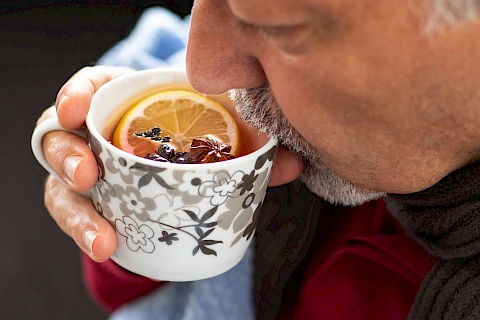
Staying hydrated is crucial during the winter for maintaining good health, especially for seniors. It's easy to overlook the importance of drinking enough fluids when the temperatures drop and thirst becomes less apparent. We highlight practical ways seniors can stay properly hydrated during the chilly season.
What Makes Winter Dehydration Different?
Dehydration in winter is just as concerning as it is in the summer. Cold air tends to be less humid, and heated indoor environments can lead to increased moisture loss through the skin. Seniors face additional challenges since their bodies naturally contain less water, and their sense of thirst diminishes with age. Seniors may already suffer from dehydration before feeling thirsty, so caregivers must be aware of other symptoms. Common signs of dehydration include dry mouth, fatigue, dizziness, and decreased urine output. Early recognition of these signs can prevent more serious health issues.
Practical Hydration Tips for Seniors
Below, you'll find some excellent suggestions to avoid dehydration:
- Setting Reminders: One of the simplest ways to ensure regular fluid intake is by setting reminders. Seniors can use alarms on phones or clocks to remind themselves to take a drink every hour. There are also various smartphone apps available that can send hydration reminders throughout the day. Family members or caregivers can be supportive by gently reminding their senior loved ones to drink fluids regularly.
- Exploring Different Types of Fluids: Water is essential, but it's only one way to stay hydrated. Warm beverages like herbal teas and broths can be comforting and hydrating during the winter. These drinks keep the body hydrated and provide warmth during chilly days. As an added benefit, incorporating hydrating foods such as soups, stews, and fruits provides a good mix of fluids and essential nutrients. Oranges, watermelon, and cucumbers are especially rich in water content.
- Making Hydration a Routine: incorporating hydration into daily activities can make a big difference. Encouraging seniors to drink a glass of water after every meal, with medications, or during television breaks can help make it a habit. Keeping water accessible is also crucial. Ensure that you place water bottles or cups in different locations around the home, such as the bedroom, living area, and kitchen, to make it easy for seniors to take a sip whenever needed.
Recognizing and Responding to Dehydration
Familiarizing yourself with the signs of dehydration can help prevent complications. Seniors might exhibit symptoms like persistent dry mouth, confusion, muscle cramps, or sunken eyes. If dehydration is suspected, take immediate steps, such as encouraging the person to drink small, consistent amounts of fluid. Offering beverages with added electrolytes can also help. However, if symptoms persist, it's essential to seek medical advice promptly to avoid severe dehydration and related health issues.
At Senior Helpers Lee's Summit, We Want to Help
Maintaining proper hydration during winter is essential for seniors to support their health and well-being. Seniors can effectively avoid winter dehydration by implementing strategies such as setting reminders, exploring various fluid options, and making hydration part of their daily routine. Families and caregivers can play a role by providing gentle reminders and assistance as needed.
If you reside in Lees Summit, Kansas City, or Blue Springs and seek support caring for your senior family member, we encourage you to contact us at Senior Helpers Lee's Summit. We would love to discuss our services for seniors and their caregivers, such as Personal Care and Chronic Disease Care.